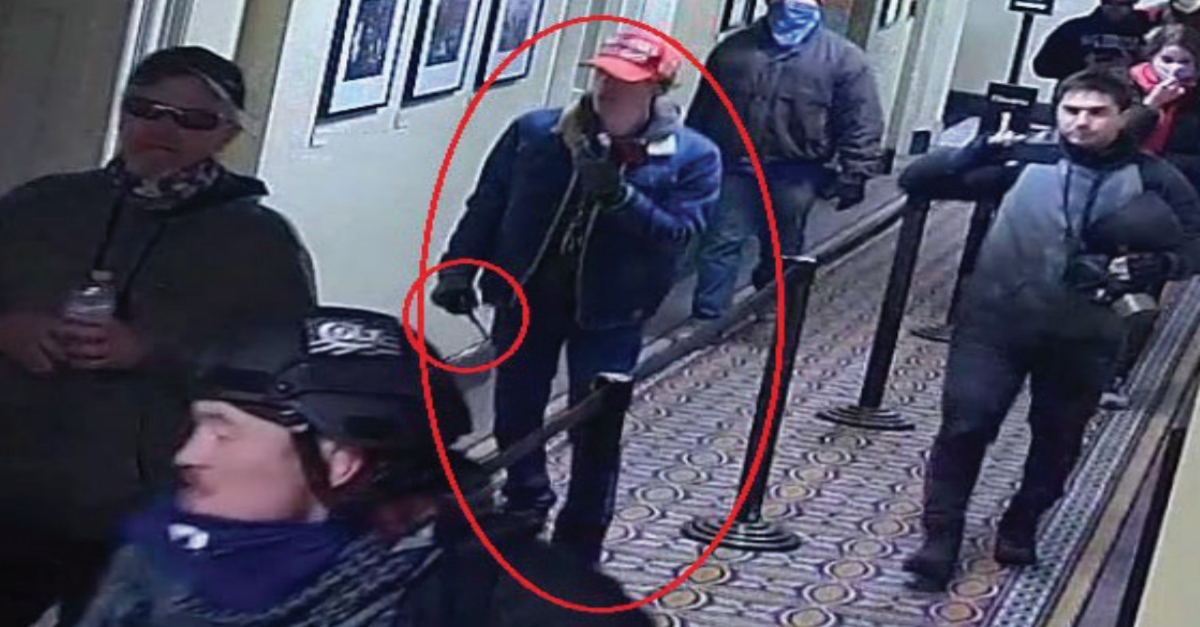
Bruno Joseph Cua
Bruno Joseph Cua, the youngest of the Jan. 6 Capitol Hill rioters charged so far, was granted bail on Wednesday after testing positive for COVID-19. The 18-year-old will not be immediately released, however, and must undergo a mandatory 10-day quarantine in accordance with guidelines by the Centers for Disease Control (CDC).
Federal prosecutors objected to the defendant’s release, as they typically have in the overwhelming majority of cases resulting from the pro-Trump insurrection targeting the U.S. Capitol Complex, but U.S. District Judge Randolph D. Moss was intent on “safely” granting Cua’s pre-trial release after learning of his health status on Monday.
The defense on Tuesday also argued for their client’s release citing an attack he suffered while in Oklahoma’s Grady County Jail.
“We understand that the inmate struck Mr. Cua in the face with his open hand, injuring his nose, over the use of the phone, and then threatened him regarding the incident,” the Monday motion from defense attorneys William E. Zapf and Jonathan Jeffress claimed.
Cua was placed in solitary confinement after the violent incident, either for his own safety or because of his recent COVID-19 diagnosis, or both, according to the defense.
The defense noted that Cua contracted COVID-19 “after spending several days in an open room with a couple dozen other inmates.”
Despite concerns over “chilling and violent” social media posts, the court was more amenable to the defendant’s safety concerns than the government’s argument that he posed a significant danger to the community—one of two boilerplate standards relied upon by federal prosecutors to keep people awaiting trial locked up behind bars. The government did not argue that Cua posed a flight risk.
Prosecutors tried, and failed, to use the pandemic against the Cua in their dual-pronged bid to make the case that he was still a threat.
“Given the defendant’s appearance at the January 6, 2021 riot without any mask or COVID-19 protections, the government has grave concerns about the defendant’s willingness to take precautions against the spread of the COVID-19 pandemic,” the prosecution argued.
The government also returned to the well of Cua’s online activity, particularly on the right-wing social media website Parler, to argue against his release.
In one such post, as noted by BuzzFeed’s Zoe Tillman, the defendant wrote that he had “lost faith in the court systems.” But the court system, for now, has not lost faith in Cua.
“Cua’s violent social media posts and messages are disquieting, to put it mildly, particularly when viewed alongside his actions on January 6,” Judge Moss wrote in the Wednesday order. “The Court is granting Cua pretrial release only by the slimmest of margins, guided by the default rule favoring liberty. Cua’s posts reveal him to rank that virtue—liberty—above all others. He can do well to honor it by fastidiously following the Court’s orders.”
The court repeatedly upbraided the defendant over his “bitter” posts that called for “violent revolution.” As a result, Cua is barred from accessing any and all social media. He will be released to the custody of his parents.
Read the court’s full order below:
[image via FBI]